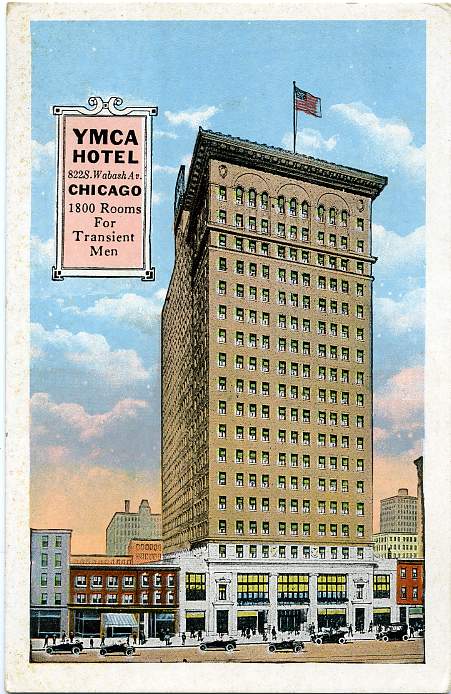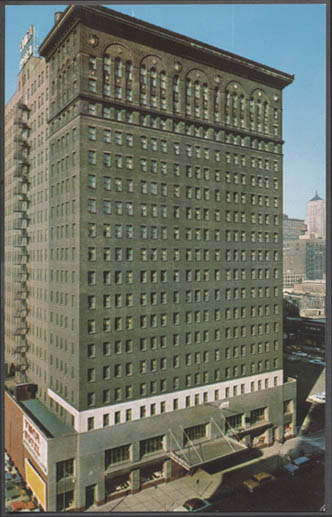YMCA Hotel, 826 S. Wabash Ave. (1916-Present)
Similar to the YWCA almost exactly one block to the east, the YMCA Hotel was built to provide a safe, inexpensive and morally upright place for young men arriving in Chicago by the thousands every year. Designed by architect Robert C. Berlin and James Gamble Rogers, the hotel opened with 1800 small, simple rooms in 1916. Just 10 years later, a significant expansion of nearly 50% to the south of the original building expanded the number of rooms, the public areas, dining facilities, and recreational facilities.
The onset of The Great Depression saw the advent of aggressive marketing of the low cost, simple lodgings at the YMCA Hotel to a broader range of customers beyond single white men. Early 1940s marketing brochures and postcards touted the convenient location of the hotel for families and tourists.
As the surrrounding neighborhood declined following World War II and increased prosperity gave tourists better options, the hotel could not compete with Chicago’s more traditional lodgings and attracted an increasingly downscale clientele. A 1979 article in the Chicago Tribune marking the closing of the hotel proclaimed it a white elephant not suitable for renovation.
Yet by 1985, nearby urban redevelopment projects were taking off. Printer’s Row and Dearborn Park– pioneering urban residential redevelopments just a few blocks away– were starting to change the financial prospects of large urban residential projects. Also in 1985, the nearby Chicago Hilton and Towers was gutted and redeveloped to modern standards. Urban loft living was beginning to take hold in large cities, and the hotel’s proximity to downtown Chicago was again becoming its chief asset.
The entire building was gutted and turned into large, spacious loft-style apartments in 1985, complete with a rooftop deck, penthouses, and an attached theater and office complex. While the new Burnham Plaza took several years to gain a foothold, the eventual success of the project gave a tremendous boost to the South Loop and helped to spur similar projects at 888 and 910 S. Michigan.

